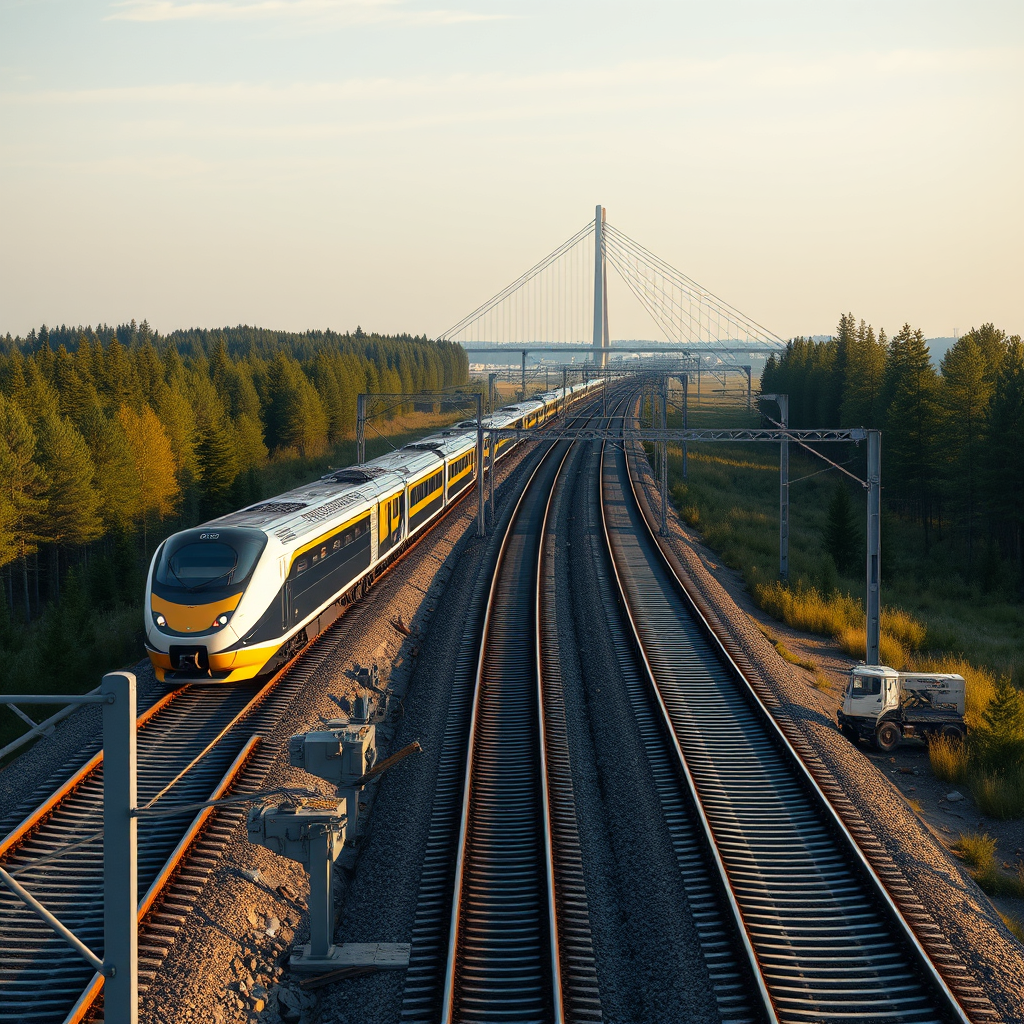Rail Baltica: Delays, Cost Overruns, and Future

Introduction
The Rail Baltica project, a high-speed rail line aiming to connect Poland, Lithuania, Latvia, and Estonia, is facing substantial challenges. Initially projected at €5.8 billion ($6.2 billion USD), the cost is now estimated to reach €8 billion ($8.7 billion USD), a significant increase driven by a confluence of factors. These include protracted land acquisition processes, delays in design and construction, and the complex political and logistical hurdles inherent in such a large-scale, international infrastructure project. This article will delve into the specific challenges confronting Rail Baltica, focusing on the cost overruns, schedule slippages, and the potential impact on the project’s long-term viability. We will analyze the key contributing factors and explore potential mitigation strategies, examining the critical role of EU funding and its implications for the project’s future.
Cost Escalation and Funding Constraints
The most pressing issue facing Rail Baltica is the dramatic increase in its projected cost. The initial budget of €5.8 billion has ballooned to an estimated €8 billion, primarily due to unforeseen delays. These delays, stemming from land acquisition difficulties, complex design revisions, and unforeseen construction challenges, have extended project timelines and significantly impacted the overall cost. The time-sensitive nature of EU funding, with a deadline approaching 2030, further exacerbates the situation. Failure to complete key sections by this deadline jeopardizes access to approximately €1 billion in EU funds, potentially derailing the project entirely. This funding shortfall would force reassessment of project scope and potentially lead to cost-cutting measures, impacting the project’s overall efficacy.
Delays and their Impact on Project Completion
Significant delays in various phases of the Rail Baltica project are contributing to the rising costs. These delays are multifaceted. Land expropriation (the process of acquiring land for public projects) has proven particularly problematic, requiring extensive legal procedures and negotiations with numerous landowners. Design modifications, often necessitated by unforeseen circumstances or changes in project specifications, have also contributed to delays. Construction timelines have been affected by logistical complications, labor shortages, and difficulties in sourcing necessary materials. The cumulative effect of these delays significantly impacts the project’s ability to meet its ambitious 2030 completion targets and risks jeopardizing the substantial EU funding secured for its implementation.
The Riga Rail Bridge and Strategic Re-evaluation
The proposed rail bridge in Riga, the capital of Latvia, represents a pivotal point of contention. Integrating the high-speed rail line into Riga’s existing infrastructure is proving exceptionally challenging. The possibility of rerouting the first phase to bypass Riga is under consideration, a move that carries significant political and economic implications. Bypassing Riga would risk creating a costly and underutilized rail line, a “white elephant,” thereby undermining the project’s overall purpose. Furthermore, the cancellation of the contract with a Spanish firm responsible for designing the Riga section necessitates a new tender process, adding further delay and potentially inflating costs.
Conclusions
The Rail Baltica project, while ambitious and potentially transformative for the Baltic States, is currently facing significant headwinds. Cost overruns, driven primarily by delays in land acquisition, design, and construction, threaten the project’s financial viability. The time-sensitive nature of EU funding adds further pressure, with the potential loss of substantial funds looming if key milestones are not met by 2030. The decision regarding the Riga rail connection is critical; bypassing the capital city risks creating an expensive and underutilized asset. A thorough and transparent review of the project’s scope, coupled with efficient project management and streamlined procurement processes, are crucial for mitigating further delays and cost increases. To ensure the long-term success of Rail Baltica, a comprehensive strategy addressing these challenges is essential. This requires not only careful financial management and robust risk assessment, but also a commitment from all stakeholders to resolve the outstanding issues promptly and decisively. A reevaluation of the project’s phases, prioritizing sections with less complexity and higher potential for timely completion, may be necessary. The project’s future hinges on a realistic assessment of its challenges and the implementation of effective solutions to ensure the timely and cost-effective completion of this vital infrastructure project.


